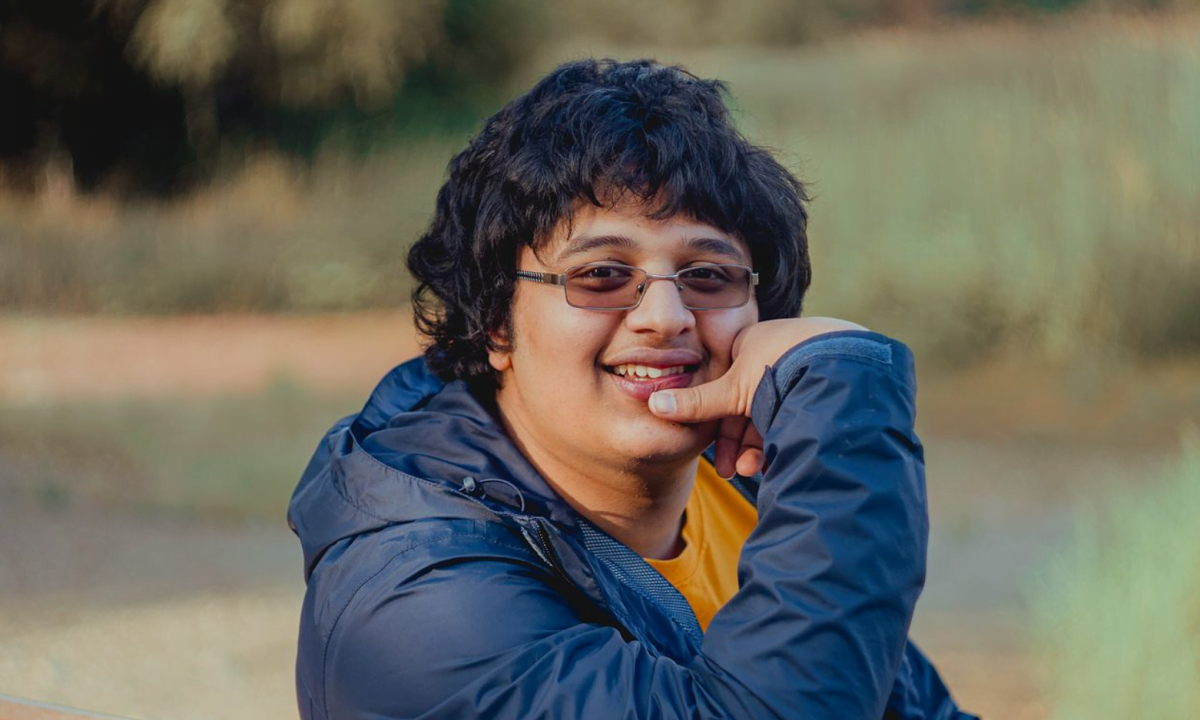
When Govind Gnanakumar was born, Mark Zuckerberg left Harvard University to build the social network Facebook. Now, at the age of 19, he also left the classroom at the Georgia Institute of Technology to focus full-time on Automorphic, an AI startup founded by him and some friends.
Gnanakumar is among young people under the age of 20 who are passionate about AI technology and decided not to miss the ongoing “gold rush”.

Govind Gnanakumar, CEO Automorphic – an AI startup. Photo: WSJ
The emergence of ChatGPT and Google Bard has created a promise of future technology trends, where people just need to give commands and AI will do everything. From technology giants to startups, everyone is following artificial intelligence models. Data collected by Crunchbase shows that more than 25% of startup investment dollars went into AI businesses in the first nine months of the year.
According to calculations by technology research and investment company PitchBook, the market size for creative AI applications is estimated to reach 43 billion USD this year and is growing exponentially. The rapid pace of development causes many young people to drop out of school to participate, so much so that investors, although praising their courage, have to warn that many projects will face a future of failure.
“More than a degree”
For Gnanakumar, the experience of dropping out of school to start his own company was as valuable as studying for a degree. His job at the startup is to create AI tools that can answer complex questions about a number of specialized topics, such as genetics or patent law.
“Many people want to automate their work. I want to help them do it sooner,” Gnanakumar said.
This wave of AI has some similarities with previous technology booms, when many students dropped out of school to pursue the new craze. Stanford University said it has repeatedly advised students to “curb their ambitions” and focus on getting a degree instead of leaving school early.
According to Jeffrey Sohl, in charge of an angel investment fund for students at the University of New Hampshire, establishing an AI company requires understanding the field, especially finding large amounts of input data. as well as know how to build and train AI models. According to him, in fact many students create highly applicable products, then return to school to complete the course. They are also willing to take risks because they do not have assets to mortgage or have children to worry about.
In fact, many people have dropped out of school and succeeded in the technology field, such as Mark Zuckerberg, Bill Gates or Steve Jobs. “It’s the magic of youth and you can love it,” Sohl said, but emphasized that only a few in the world can do so. “Most fail. Not all can change the world.”
According to Jenny Fielding, co-founder of venture capital fund Everywhere Ventures, the majority of AI startups currently take advantage of available AI tools. For example, one can use ChatGPT to develop algorithms that previously would have required a team of engineers to create.
Similarly, Kevin Lu, now 20 years old, left the University of Waterloo in Ontario (Canada) to spend time on Sweep AI – a platform created by him and a group of friends. At the company, he takes on the role of CTO. “If I wait until I graduate, I might be replaced by AI. I’d rather be someone else’s replacement,” Lu said. A recent McKinsey analysis found that up to 30% of tech workers’ time could be altered by automation over the next decade. According to research by the University of Pennsylvania and OpenAI, 80% of workers are doing jobs that have at least one task that could be replaced by AI in the future.
Kartik Hosanagar, head of the talent incubation program at the University of Pennsylvania’s Wharton School, said students and recent college dropouts who start their own companies consider their products as a business project. “Most of the ideas at recent school startup competitions were tied to AI, even if they weren’t necessary,” Hosanagar said.
David Zhi LuoZhang and Jeffrey Pan, both 20 years old, took graduate-level machine learning training at the University of Pennsylvania last year as sophomores. The two then created Bronco AI, a tool that aggregates business data to support executives’ decision-making. When they receive their first investment, they drop out of school.
“It’s hard to focus on homework when you’re thinking about how to help CEOs run factories in America,” LuoZhang said about his reason for missing school.
Jay Dang, 21, also left the University of California Berkeley in January after founding FlowGPT – a suite of AI-based applications that can create games or perform tasks such as writing marketing materials or editing resumes. background. He said it was the best decision of his life.
To date, FlowGPT has 2.2 million monthly active users. In May, the company raised $2 million in investment capital and is currently valued at $12 million. Currently, this startup has 8 full-time employees.
“I currently work 90 hours a week when I start my business, which is not much different from the time spent in class and self-study, especially during exams,” Dang said, mentioning his “plan B”. . “You can always go back to college if you fail.”
Bao Lam (according to WSJ )

Leave a Reply
You must be logged in to post a comment.